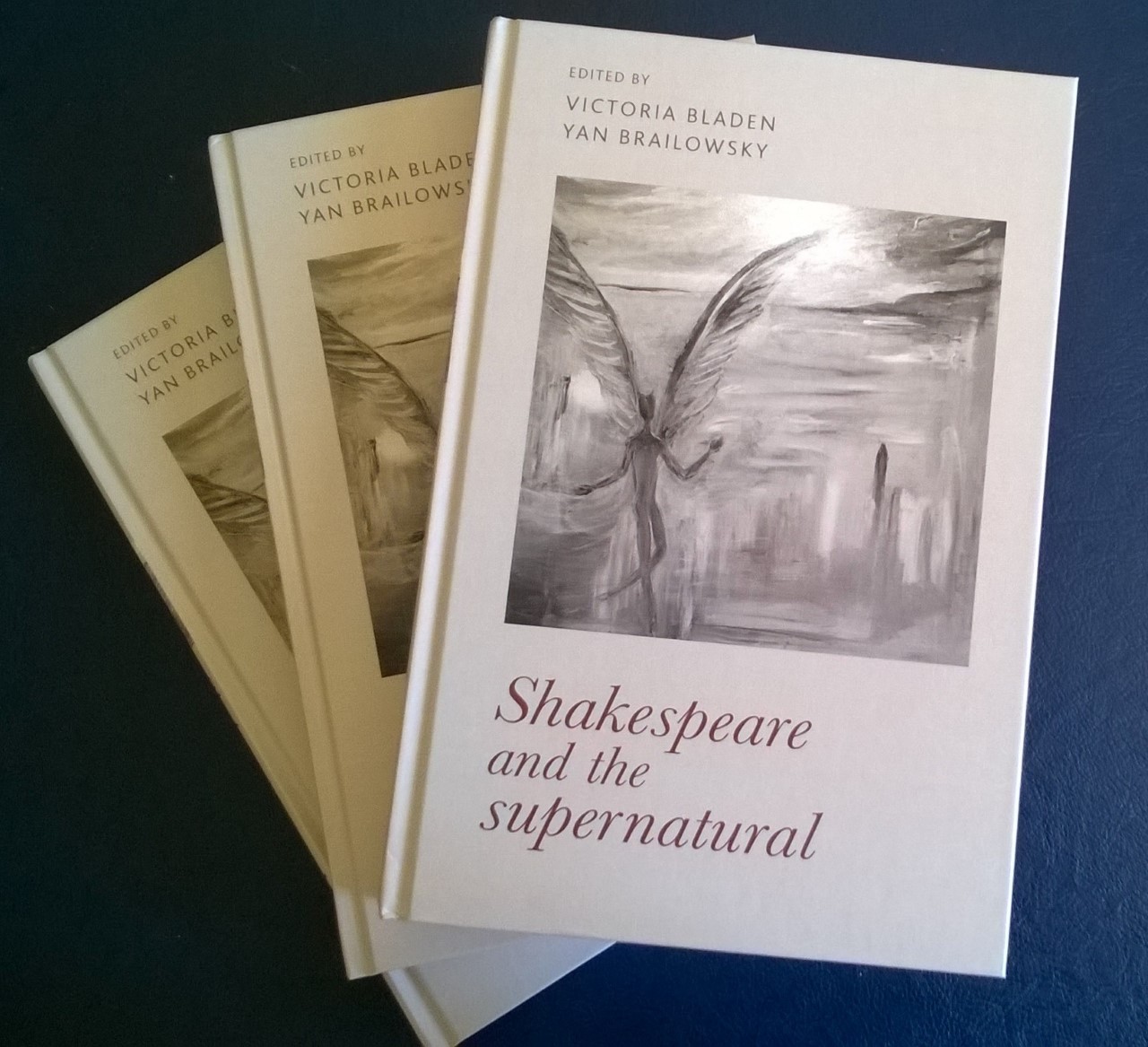Shakespeare and the Supernatural
 Supernatural elements are of central significance in many of Shakespeare's plays, contributing to their dramatic power and intrigue. Ghosts haunt political spaces and internal psyches, witches foresee the future and disturb the present, fairies meddle with love and a magus conjures a tempest from the elements. Although written and performed for early modern audiences, for whom the supernatural, whether sacred, demonic or folkloric, was part of the fabric of everyday life, the supernatural in Shakespeare continues to enthrall audiences and readers, and maintains its power to raise a range of questions in contemporary contexts.
Supernatural elements are of central significance in many of Shakespeare's plays, contributing to their dramatic power and intrigue. Ghosts haunt political spaces and internal psyches, witches foresee the future and disturb the present, fairies meddle with love and a magus conjures a tempest from the elements. Although written and performed for early modern audiences, for whom the supernatural, whether sacred, demonic or folkloric, was part of the fabric of everyday life, the supernatural in Shakespeare continues to enthrall audiences and readers, and maintains its power to raise a range of questions in contemporary contexts.
This volume published by Manchester University Press (2020), explores the supernatural as a significant dimension of Shakespeare’s work, combining consideration of historical contexts of early modern drama with contemporary approaches to performance on stage, screen and in popular culture.
Edited by
Victoria Bladen teaches in literary studies and adaptation at The University of Queensland, Australia.
Yan Brailowsky is a senior Lecturer in early modern British history and literature at the University of Paris Nanterre.
Themes
The volume comprises twelve chapters from an international group of scholars and is structured through five themes:
- Embodying the Supernatural considers the political dimensions of Shakespeare’s ghosts (Victoria Bladen), supernatural generation in Richard III (Chelsea Philips) and the digital puppetry of the RSC’s 2017 Tempest (Anchuli Felicia King)
- Haunted Spaces examines the demonic puns of Hamlet (Pierre Kapitaniak) and the haunted performance space of the Honour Court at the Avignon Shakespeare festival (Florence March)
- Supernatural Utterance and Haunted Texts covers prophecy and performativity (Yan Brailowsky), topical allegory in A Midsummer Night’s Dream (Laurie Johnson) and witchcraft in Macbeth discourse (William C. Carroll)
- Magic, Music and Gender explores the alchemical dimensions of The Tempest (Nathalie Roulon) and the gender implications of magic for stage and screen Prosperas (Katherine Goodland)
- Contemporary Transformations addresses the challenges of representing fairies on screen in adaptations of A Midsummer Night’s Dream(Gayle Allan) and the magical dimensions of Ophelia in contemporary Japanese pop culture (Yukari Yoshihara).
Additional Details
The volume provides new insights on the construction of the supernatural and the challenges of representation and meaning for critics and creators.
You can discover more about this work by clicking here.



